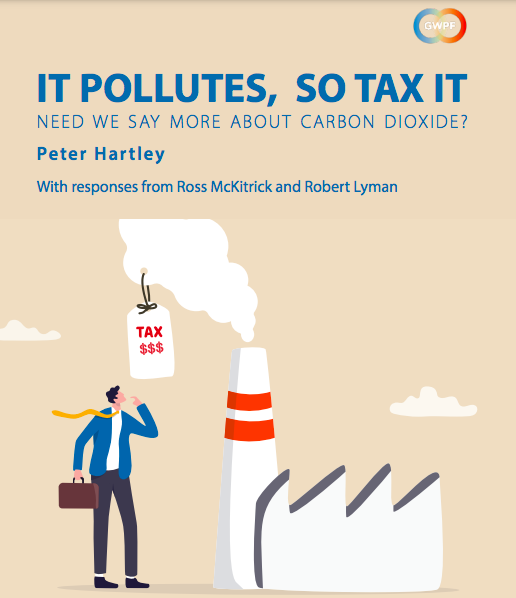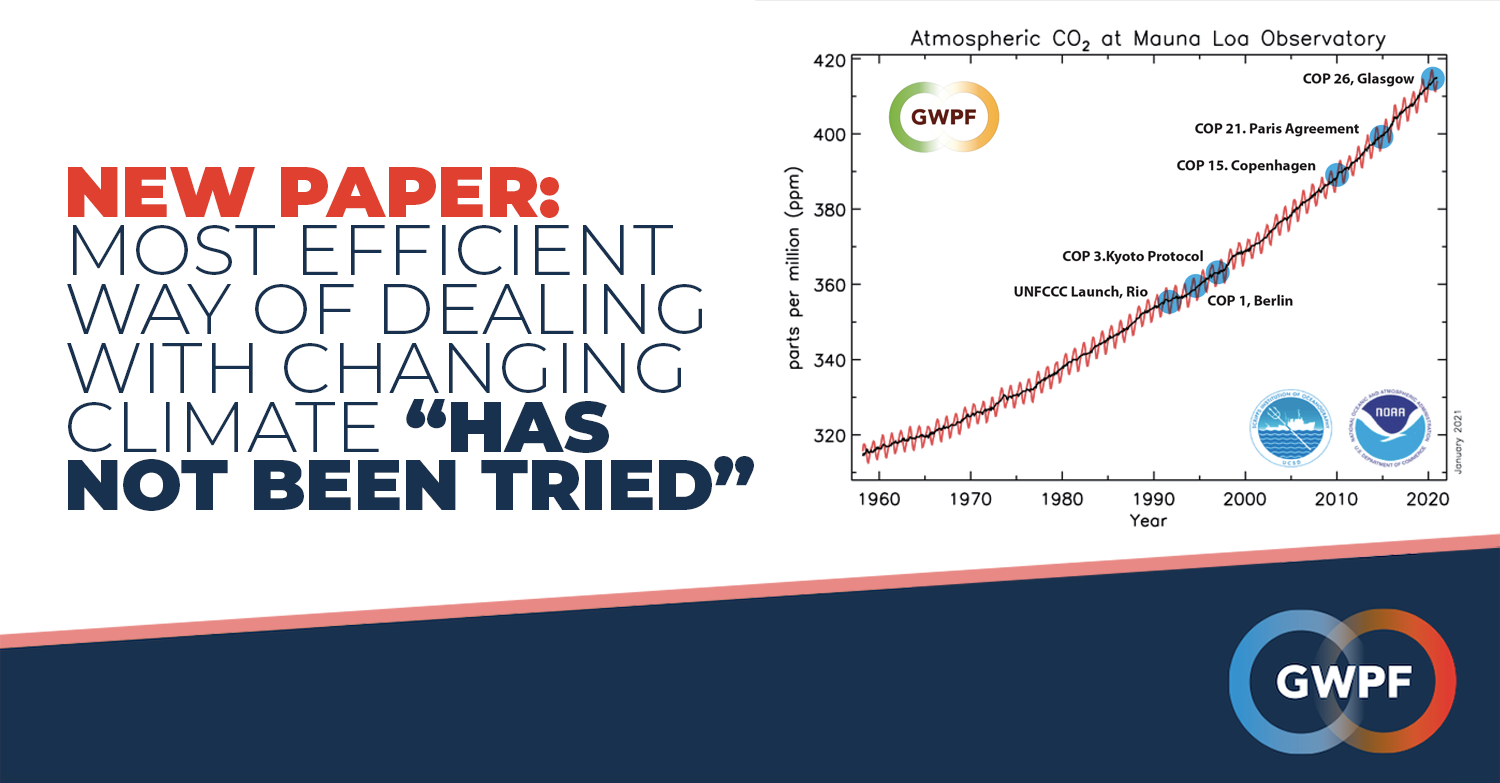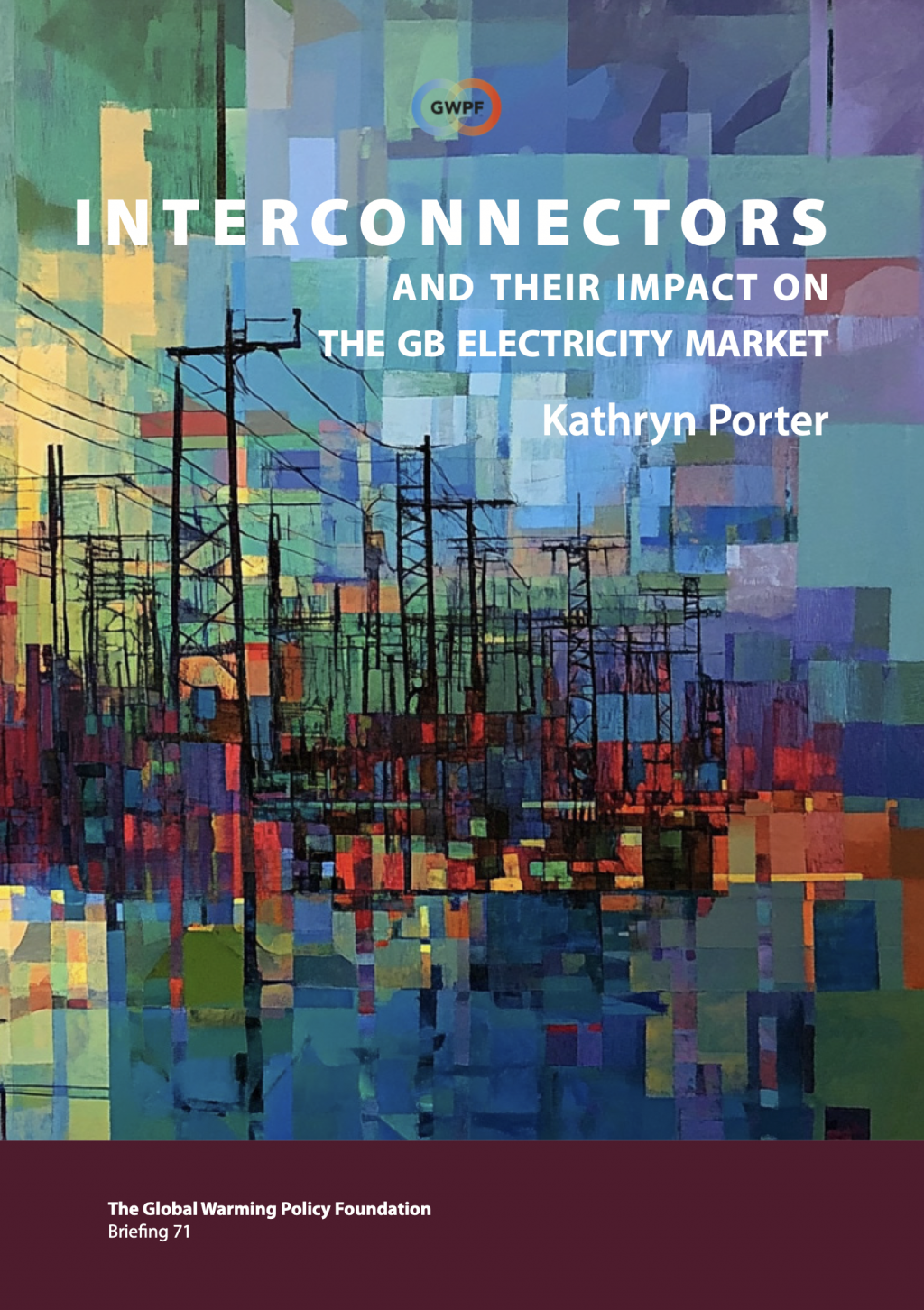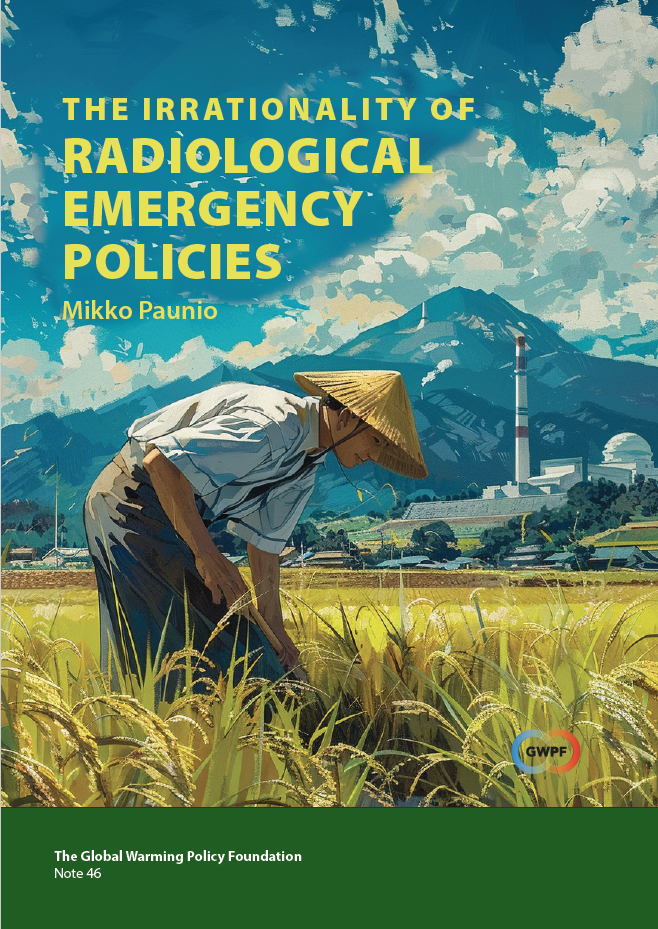Carbon taxes, the most efficient way of dealing with changing climate “have not been tried”
Mandating renewables is inefficient in theory and ruinously expensive in practice
London, 24 October – An important new paper from the Global Warming Policy Foundation argues that the failure to limit CO2 emissions is a direct result of politicians’ obsession with mandating renewables as the main policy response.
The author, energy economist Professor Peter Hartley, argues that from basic economic theory, the imposition of an emissions tax is the best method of reducing CO2 emissions. However, policymakers have ignored this almost unanimous view of economic experts, and instead have mandated favoured technologies, notably renewables.
According to Professor Hartley:
Mandating renewables is inefficient in theory and ruinously expensive in practice. There may be a case for subsidising research into new technologies, and there is certainly a strong case for spending on adaptation measures like flood defences, drought-proofing, improved evacuation and disaster recovery procedures, and the like. These defend against extreme weather events no matter the cause, can be chosen to suit local vulnerabilities, and do not require contentious international agreements to be effective. But picking energy winners in just a few countries is proving expensive, dangerous to national security, and worthless as a response to extreme weather events”.
The paper includes comments from two other economists, Professor Ross McKitrick and Robert Lyman. While having some disagreement about the details, McKitrick agrees that the principles behind carbon taxation are “inescapably obvious” and that if such a tax were put in place, “no one would respond to it by flinging vast amounts of money at wind or solar energy.”
Peter Hartley: It pollutes, so tax it (pdf)




